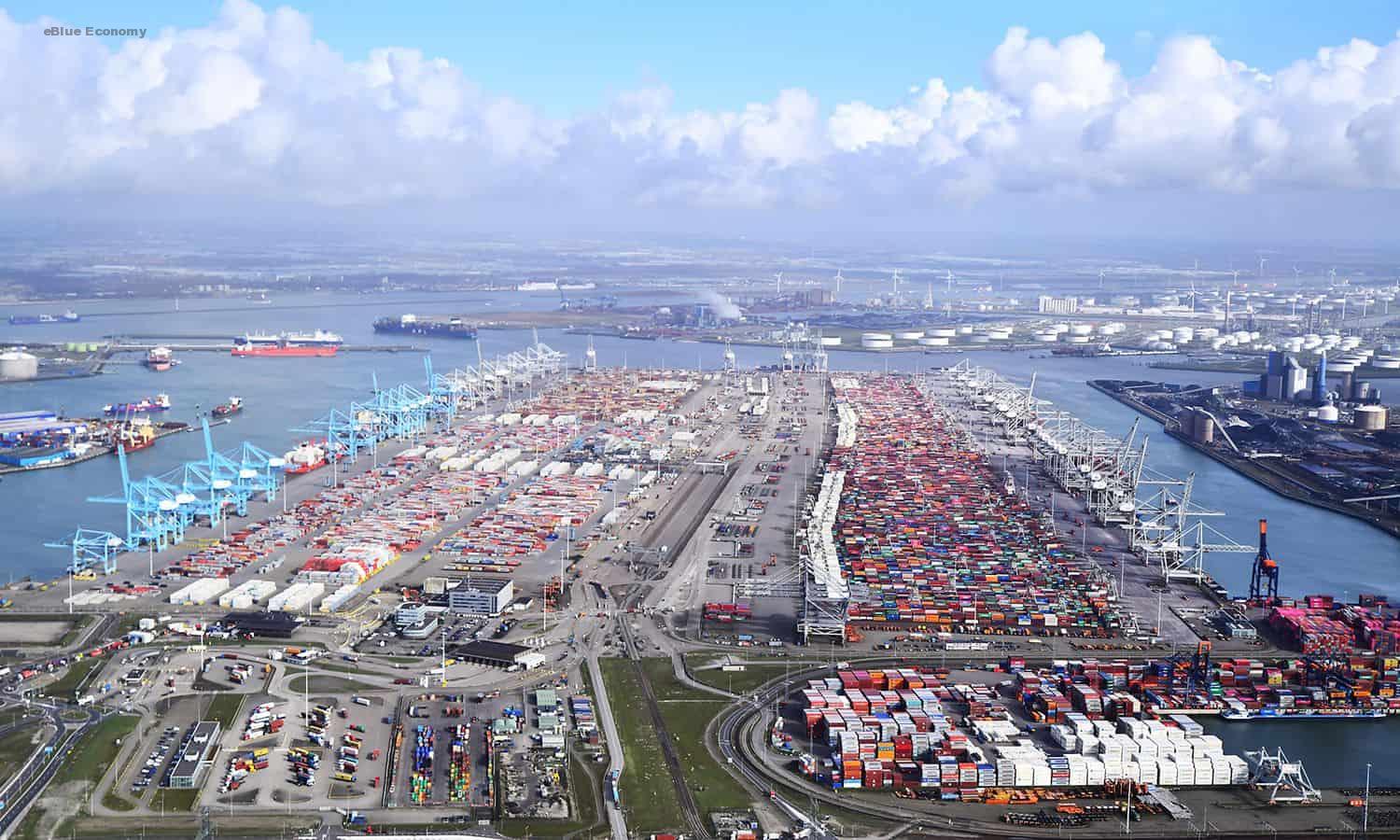The Dutch government is faced with various challenges in the areas of employment, economic development and sustainability – and a series of projects currently underway in the port of Rotterdam are proving particularly relevant in this context.
These projects are expected to create structural employment for at least 9,000 to 15,000 people, contribute a minimum of 7 billion euros to the Dutch GDP and yield at least 10 million tonnes in carbon savings. The financial and strategic consultancy firm Rebel has validated the effects of this series, known as the Starter Motor projects.
Allard Castelein, CEO of the Port of Rotterdam Authority: ‘We intend to increase the sustainability of our port and recover as quickly as possible from the recent economic downturn. This can be achieved by accelerating the execution of these projects.
The Starter Motor projects will in turn serve as a catalyst for other projects. With the support of the national government, we will be able to work more effectively towards a sustainable and thriving port economy that creates new jobs and prosperity.
The more decisiveness we show compared to other ports, the more international investments we will be able to attract.’
The Covid pandemic has put the Dutch government before the challenge of bringing both economic decline and mounting unemployment under control.

At the same time, the Netherlands needs to further improve the sustainability of its economic system, achieve the agreed-upon climate targets and ensure that we can maintain our current prosperity in the longer term.
Under the header ‘Starter Motor projects’, the Port of Rotterdam Authority has submitted 12 projects to the Dutch government that give concrete shape to these objectives.
One of the key projects in this series is intended to create a strong hydrogen cluster in Rotterdam. Among other things, the project focuses on the production of blue and green hydrogen and the development of a pipeline that transports hydrogen between its various points of production and consumption.
A related project centres on the planned construction of a pipeline corridor between the port of Rotterdam, Chemelot (Geleen) and North Rhine-Westphalia that will mainly be used to transport hydrogen and CO2. This corridor will enable industry in Rotterdam’s hinterland to further increase its sustainability, while simultaneously allowing Rotterdam to consolidate its position as a leading energy hub for Northwest Europe.
A third key initiative is the CCS project Porthos, in which a share of the CO2 produced by industry in Rotterdam is captured and stored in empty gas fields in the North Sea floor. CCS is a relatively inexpensive way to prevent a large volume of CO2 from being released into the atmosphere.
The above three projects allow Rotterdam’s industrial cluster to both innovate and raise its collective level of sustainability, and the port to strengthen its position as a hub for energy flows in Northwest Europe. In addition, Rotterdam’s industrial complex will be making a major contribution to the achievement of the national climate goals.
Rebel performed a quick scan to determine the economic impact of the twelve Starter Motor projects. In the short term, the submitted projects will boost employment – particularly in the construction sector – and result in the structural creation of at least 9,000 to 15,000 extra jobs.

The different projects are projected to contribute a minimum of 7 billion euros to the Dutch GDP. And once the projects have been fully implemented, other yields include increased reuse of raw materials, less noise nuisance and improved safety – thanks to the use of pipelines for transport, for example. All in all, the projects’ contribution to the Dutch national carbon emissions reduction target for 2030 could amount to around 25%.
Rebel has identified a number of projects that it has dubbed ‘platform investments’, including a central hydrogen pipeline that runs through the port area. An initial public-private investment of this kind is expected to lead to a series of follow-up investments by private firms, since these players will be connecting their locations to the main pipeline.
In addition to this hydrogen infrastructure, other key projects that can be expected to serve as drivers for new developments are the Porthos carbon transport and storage project and various projects relating to the circular economy (chemical
recycling, use of CO2 as a raw material and the conversion of waste into feedstock for the chemical industry).
An analysis that was made in the context of the 2019 Rotterdam Climate Agreement showed that a government investment of 1 to 1.5 billion euros in the period until 2030 would already generate some 4 to 5 billion euros in private investments. This is a multiplier of roughly 4: for every euro invested by the government, the private sector invests an additional four.
Rebel concludes that through the Starter Motor projects, the Port Authority will be actively contributing to the national goals of the Netherlands in the areas of climate change mitigation, hydrogen, circularity and accessibility
[doc id=42601].
These objectives are set out in the national Growth Agenda, the Climate Agreement, the government’s perspective on hydrogen, its circularity agenda and its Port Policy, which in turn have been aligned with the international objectives outlined in the EU’s Green Deal and the Paris Accord, among other agreements. In other words, the projects are an integral part of a broad international transition towards, and development of, a new energy economy and approach to raw materials.
press release














